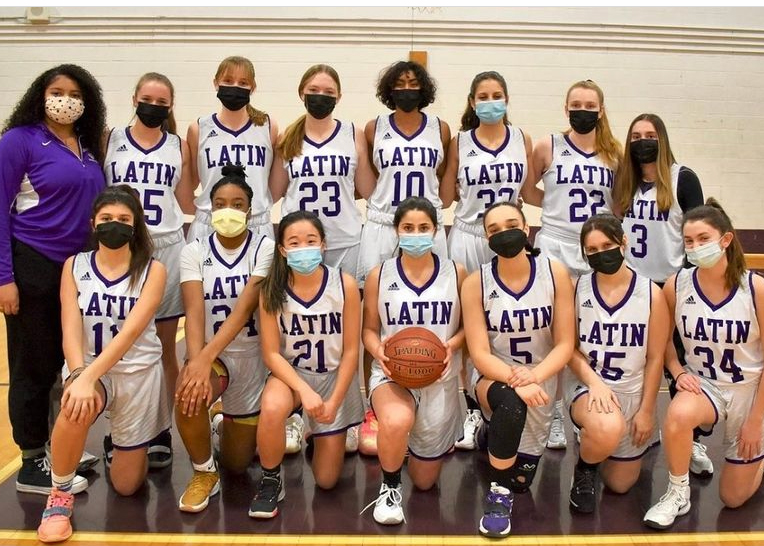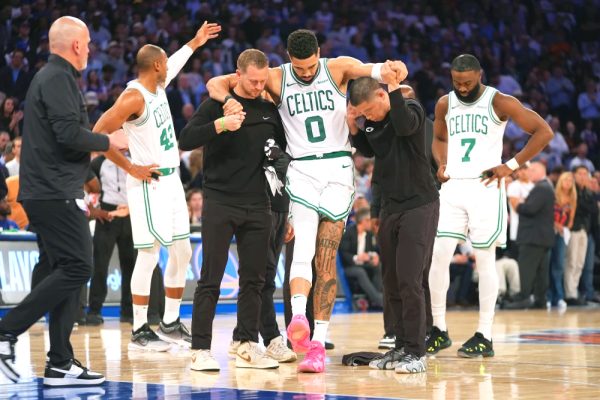Women in the Male-Dominated Sports World
March Madness is the pinnacle of college basketball and one of the most anticipated tournaments in the world. In 2021, however, March Madness brought up many questions aside from the usual, “Who’s gonna win it all?” or “How’re your brackets looking?” Many female athletes instead brought attention to two issues that have plagued women’s sports for the entirety of their existence: inequalities and the lack of respect.
Most of us probably remember the viral video posted by University of Oregon women’s basketball player Sedona Prince, on TikTok, showing the single set of dumbbells and small “swag bag” provided by the National Collegiate Athletic Association for the women as opposed to a fully-equipped Olympic-grade weight room and massive swag bags for the men.
This, however, was not the first time that public or major corporations have devalued women in sports — including coaches, trainers, female broadcasters and many others. Not taken as seriously as men in the field, many women are forced to fight stigma when it comes to pursuing such a male-dominated field.
Many female broadcasters struggle with the stereotype that they have chosen their jobs to “get close with” male athletes when in reality many have demonstrated their ability and unique perspectives while reporting on sporting events.
Numerous coaches, athletes and teams, furthermore, do not garner the same respect as those participating in men’s sports do. Amelia Teta, a Lesley University softball player, states, “The issue is that as girls’ sports are becoming more popular, oftentimes they are seen as easier compared to the male counterpart.” She adds, “There is a large tone in female sports that girls cannot make a sport a big part of their personality.”
While there has certainly been progress in recent years when it comes to respecting women’s sports, women are often discouraged from pursuing sports past middle or high school. Many who go on to become collegiate-level or professional athletes are seen as inherently less feminine.
Female athletes cannot escape criticism. Caught in a double bind, the “female” part of “female athletes” is often weaponized against women and girls — they are either not strong or good enough because they are female, or not feminine enough because they play sports.
A triathlete for Northeastern University, Ema Noonan (‘20), says, “I feel like many times men don’t see women in sports as their counterparts. Although we work as hard as them and might be just as strong or as fast or as skilled, many times they will see themselves as more athletic.” Times may be changing, but the work should not be left to women and those discriminated against in this field; it must also be done by the men who continue to allow such discrimination to occur.
Paige Fitzgerald (II), a Boston Latin School softball and basketball player, remarks, “Playing sports is a challenge in itself and to have to constantly face these inequalities makes it even harder for females. I’m not advocating for administration to take away attention from male sports, but instead, I want us to be treated equally.”
Equitable treatment of both men’s and women’s sports is essential. Sports provide opportunities for athletes to do what they love but also serve as a safe space or source of income for those who need it.
Throughout their existence, sports have served to be much more than simply athletic events and shows of strength; they have brought people together both physically and figuratively, provided happiness and companionship and helped many young athletes to mature and grow as individuals. With legislation like Title IV and the rise of social media, which has served to be both good and bad, many women have been able to become recognized as the greatest athletes of all time.
The coach of the BLS girls’ varsity swim team, Rosalie Jones, states, “While there is still room for improvement, I am pleased to see so much more investment in women’s and girls’ sports at the youth, high school, collegiate and professional level.”
In order to make further improvements to the world of athletics, any woman participant must be given the same amount of respect and attention as their male counterparts.






